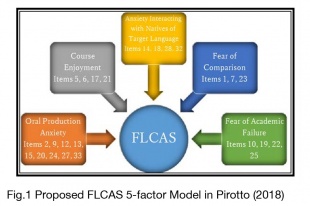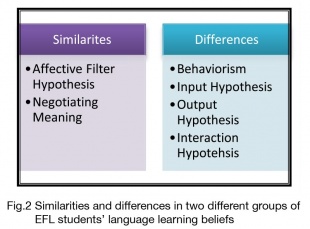- Home
- Faculty Members
- Organization for Fundamental Education
- Christopher Pirotto
Organization for Fundamental Education
- Key words
- TESOL, Quantitative Methods, Foreign Language Anxiety, Language Learning Beliefs, FLCAS

M.A. / Lecture
Christopher Pirotto
Education
Department of Political Science, University of California San Diego
Department of Political Science, San Diego State University (Master’s Program)
Department of English and Linguistics, University of Birmingham (Master’s Program)
Professional Background
Assistant Professor of Foreign Languages, Fukui University of Technology; English Language Instructor, Domestic Language School; Assistant Language Teacher
Consultations, Lectures, and Collaborative Research Themes
Foreign language anxiety in Japanese learners, use of quantitative research methods in TESOL, and individual differences amongst language learners
Main research themes and their characteristics
「Understanding Foreign Language Learning Anxiety」
High levels of anxiety in the language learning classroom can lead directly to decreased motivation and language gains. On that premise, Pirotto (2018) investigated the language learning anxieties that Japanese university students held. Through use of the Foreign Language Classroom Anxiety Scale (FLCAS), it was found that none of the previously proposed factor models of the FLCAS were a good fit for the participants and a new factor model was necessary to explain these learners’ anxieties. Therefore, using factor analysis Pirotto (2018) proposes a 5-factor model as a new way to interpret results from the FLCAS. Further research into improving methods to interpret foreign language learning anxiety was continued in Dykes and Pirotto (2019). Through confirmatory factor analysis, the authors found that three widely used factor models were not fitting to a different group of Japanese university English language learners. Future research will investigate specific aspects of foreign language learning anxiety.
「Language Learning Beliefs of Japanese Learners of English」
This research investigates the language learning beliefs of Japanese English language learners. In Pirotto (2019), using Horwitz’s Belief’s about Language Learning Inventory and exploratory factor analysis, six commonly held language learning beliefs were identified from a group of 206 Japanese university students. From the discovery of these beliefs, the researcher proposes several suggestions about how this knowledge can be applied to improve the students’ language learning process. Research into learner beliefs continues with Pirotto and Pemberton (2019) when two very different groups of high school students were given a questionnaire to evaluate their language learning beliefs. This research was done to determine if what language learning beliefs are held amongst all young Japanese English language learners, and what beliefs differ greatly. Amongst all students, there was belief in the affective filter hypothesis and negotiating meaning. Whereas there no commonly held beliefs about behaviorism, the input and output hypotheses, and the interaction hypothesis.
Major academic publications
Pirotto, C. (2019). Learners’ beliefs about language learning: A factorial investigation. In P. Clements, A. Krause, & P. Bennett (Eds.), Diversity and Inclusion (pp. 162-168). Tokyo: JALT.
Pirotto, C. & Pemberton, C. (2019). Student SLA beliefs at two Japanese high schools. Memoirs of Fukui University of Technology, 49, 232-241.
Pirotto, C. (2018). A factorial investigation into the English language learning anxiety of first-year university students in Japan. Memoirs of Fukui University of Technology, 48, 165-172.


